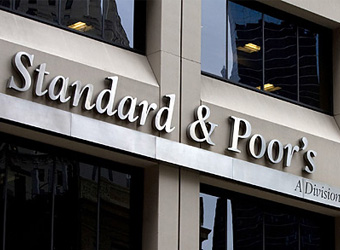Gulf banks will remain big buyers of financial assets in the Middle East and North Africa, attracted by lower prices and opportunities for growth, Standard and Poor’s Ratings Services said.
Banks in the six-member Gulf Cooperation Council, which includes Saudi Arabia and the United Arab Emirates, are taking the place of European banks that are shoring up their balance sheets in the aftermath of financial and sovereign-debt crises, S&P said in a report published today.
“Banks in the Gulf have capital to spare,” credit analyst Timucin Engin said in the report. They “are literally capitalizing on their traditional strengths such as strong capital positions, healthy liquidity, and supportive shareholders to pursue acquisitions in MENA emerging-market countries, where opportunities for long-term growth exist.”
Investors from the Gulf are boosting their holdings in countries like Egypt and Turkey, attracted by rising profit and growth in loans. BNP Paribas SA (BNP), France’s biggest bank, in December agreed to sell its Egyptian unit to Dubai-based Emirates NBD PJSC (EMIRATES) in a $500 million deal. Earlier that month Societe Generale SA (GLE), France’s second-largest bank by market value, agreed to sell a majority stake in its Egyptian unit to Qatar National Bank SAQ (QNBK) for $1.97 billion.
’Longer-term Growth’
These transactions are opportunities for diversification into markets with large “unbanked” populations, which can provide for longer-term growth, S&P said. Banks are seeing growth opportunities in young populations in Turkey, Egypt, and in some Asian countries such as Indonesia, it said.
Commercial Bank of Qatar is continuing talks to acquire 75 percent of Alternatifbank AS (ALNTF) and plans to complete discussions in March, the company said on Jan. 17. Finansbank AS, owned by National Bank of Greece (TELL) SA, will probably be a target for Qatar National Bank SAQ as the Middle East’s biggest bank studies buying a Turkish lender, Ovunc Gursoy, an analyst at Yapi Kredi Yatirim Menkul Degerler has said.
“Potential rating movements depend on a conflux of factors, such as how well capitalized the acquirers will be post-acquisition, how well they will manage the credit exposures arising from these expansions, and whether they will be able to reap potential benefits of diversification,” Engin said.
A “significant risk factor” for such acquisitions is that most banks in the Gulf lack lending and credit underwriting experience outside their region, S&P said.
Bloomberg



